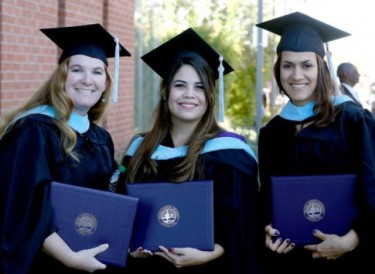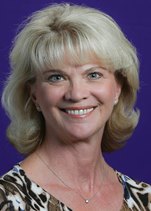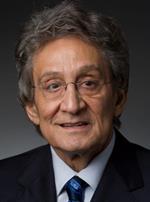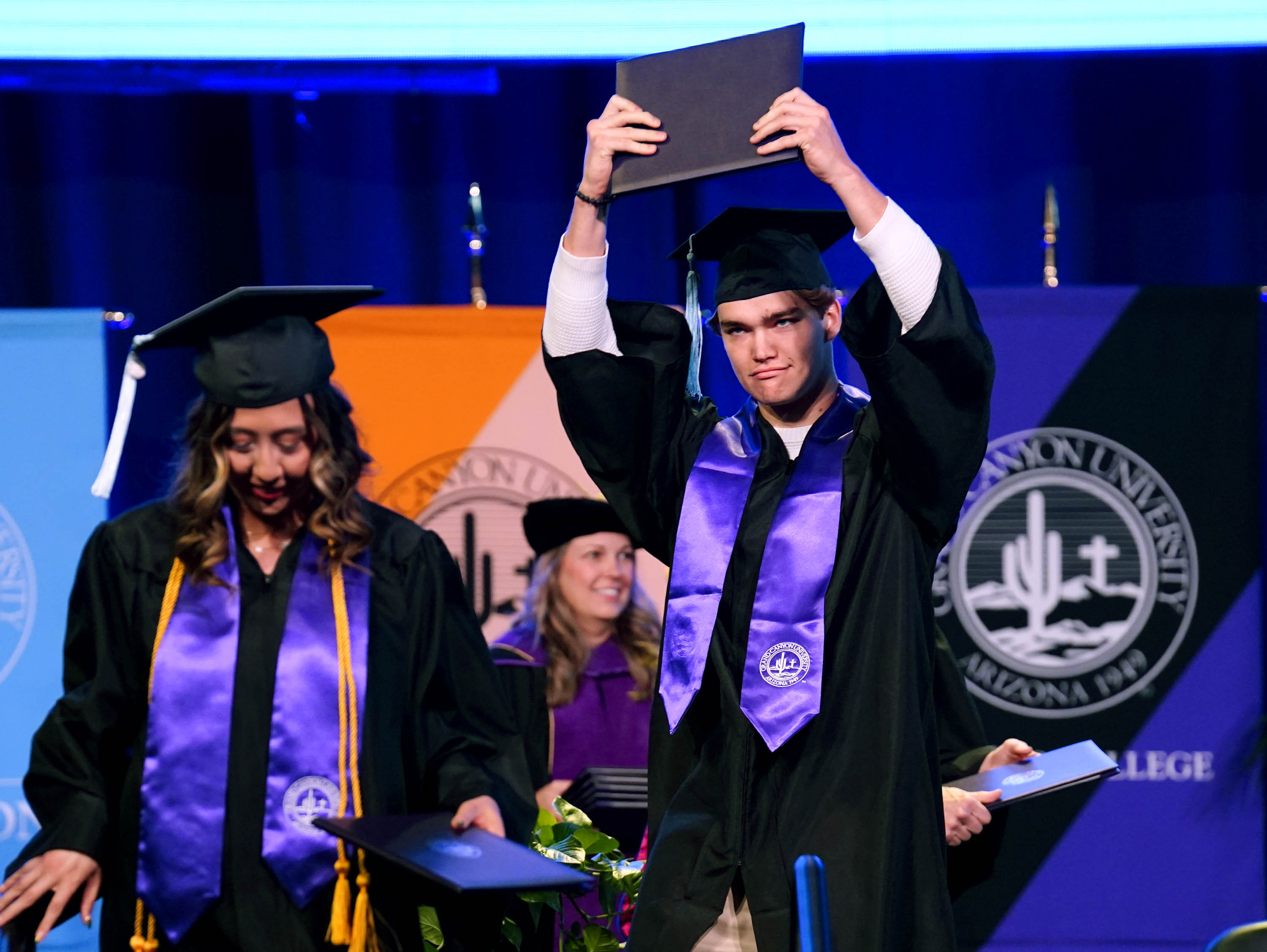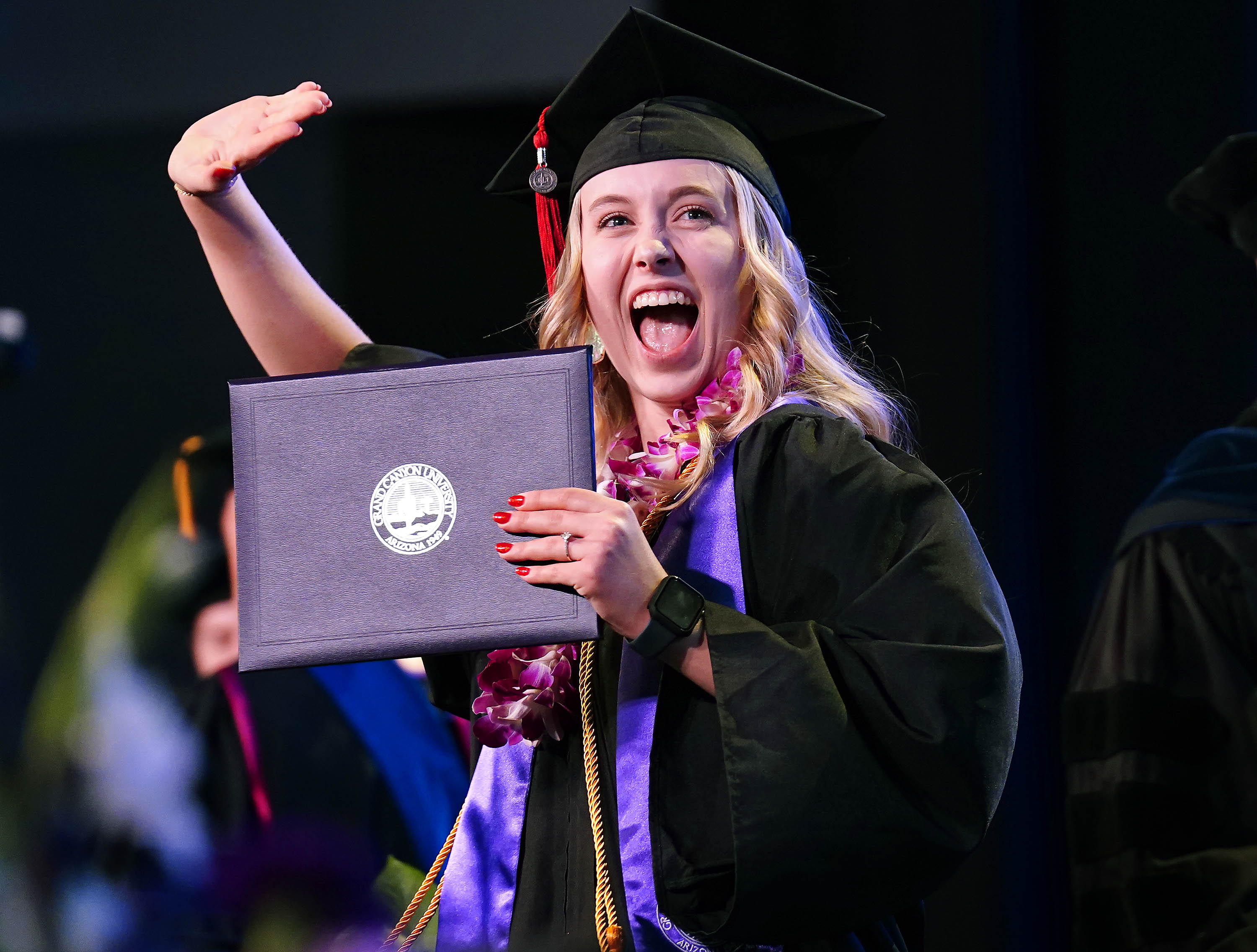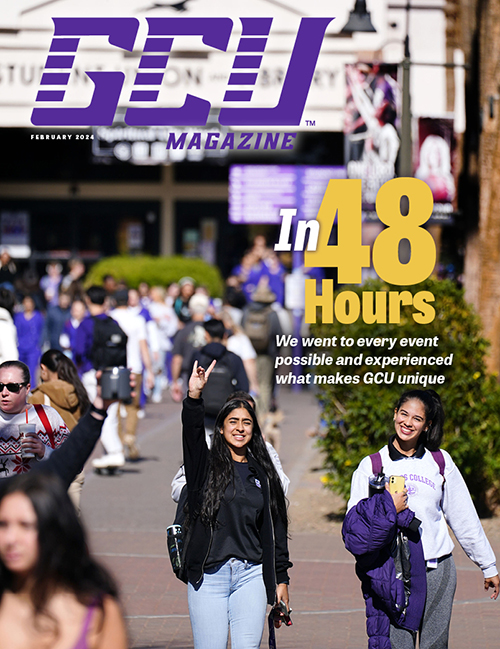Story by Janie Magruder
Photos by Darryl Webb
GCU News Bureau
A new policy paper by Grand Canyon University cautions that public education in Arizona will continue on a downward spiral of low student achievement and mass teacher exodus unless state leaders act now to better train, pay and promote all educators – from student teachers entering their first classrooms to those with decades of experience.
“Addressing a Shortage of High Quality Teachers: An Escalating Dilemma for Arizona Schools” calls on the Legislature to develop a new formula for school funding and to dedicate funds for increased pay and sustained professional development for teachers. The paper also suggests that school districts do a better job of building a support system for new teachers by matching them with veteran educators.
The report was published in May and introduced at the Arizona School Administrators’ summer conference in Tucson. Dr. Kimberly LaPrade, dean of the GCU College of Education, and Dr. Gerald Tirozzi, a national leader in education reform and the paper’s author, discussed it during a session moderated by Dr. Beverly Hurley, GCU’s director for academic partnerships.
“There is no silver bullet. As a community, we cannot address just one of the recommendations if we want to make lasting change,” LaPrade says of the paper.
Commitment to teachers and the profession
LaPrade notes that GCU already is doing its part where the paper’s recommendations are concerned. For example, the College of Education has been supporting first-year teachers for nearly 30 years through the COE Promise, in which graduates of the University’s teacher-preparation programs who have been recommended for certification at the elementary or secondary level may receive help at no cost to them or their school district.
“Assistance can range from the student taking a refresher course in the area of difficulty to the student receiving mentoring by faculty who will coach the new teacher in such areas as curriculum planning and design, classroom management, content presentation and individualized instruction,” LaPrade says.
GCU also aligns its teacher-education courses with national standards and has incorporated into them the Arizona College and Career Ready Standards, formerly known as the Common Core. Students not only learn concepts and theories in the classroom but also grapple with them in real-world field experiences, LaPrade says. GCU also has demonstrated its commitment to attracting high-caliber people to the teaching profession, she says, noting that the grade-point averages of COE’s incoming traditional students have risen from 3.31 in 2011-12 to a preliminary GPA of 3.38 for 2014-15.
“We train our teacher candidates to be highly effective educators who are committed to learning, leading and serving,” she says.
The paper is being widely distributed to teachers, school administrators, policymakers, parents and the general public and will be introduced at conferences and meetings throughout the summer and fall leading up to the 2015 legislative session. It is the third such paper to be commissioned by GCU and written by Tirozzi, an assistant secretary of elementary and secondary education at the U.S. Department of Education during the Clinton administration and a former Connecticut commissioner of education. Phyllis Carbonaro and Michael Winters, students in GCU's College of Doctoral Studies, are co-authors.
Quality teachers = student achievement
The report highlights the need to promote excellence in teacher recruitment and retention as opposed to filling classrooms with “warm bodies” ill-prepared to teach. Tirozzi cites a wide body of research that suggests the most important impact on student learning is the teacher.
Nearly one-third of new teachers in Arizona leave their school districts within the first three years of their careers, and half of them depart within the first five, Tirozzi reports. According to the Arizona State Retirement System, a total of 13,350 public school staff, ages 30 and younger, have walked away over the past five years. Many of them, he says, were teachers who no longer can endure what education consultant Jamie Vollmer calls “the practice of bashing public schools as a blood sport.”
They are fleeing their classrooms because of low salaries, loss of benefits, lack of financial support in the classrooms, ill-advised evaluations of their performances and general disillusionment with their profession and working conditions, Tirozzi says.
The aging of quality educators also is a problem: An estimated 25,500 staff members at Arizona public schools will be eligible for retirement in 2018. To make up for the shortage, many schools are hiring full-time substitutes who are trained in subjects other than teaching children.
Impact on student achievement
The paper points to the teacher as the most important component of quality student learning, and it quotes renowned educator Linda Darling-Hammond as saying children deserve the best.
“Studies at the state, district and individual level have found that teachers’ academic background, preparation for teaching and certification status, as well as experience, significantly affect their students’ achievement,” according to Darling-Hammond, a professor and faculty director of the Stanford Center for Opportunity Policy in Education at the Stanford Graduate School of Education.
The below-average academic standing of Arizona’s public schools isn’t news. But recent data from the Arizona Board of Regents indicates a further decline and an alarming lack of college preparedness among students. Using statistics from the Arizona high school graduating classes of 2006 and the graduates’ college attendance/completion rates six years later, the ABOR report found:
- 43.5 percent did not go to college
- 32.3 percent attended college but didn’t graduate
- 18.6 percent earned college degrees
- Half of the state’s high schools had 5 percent or fewer of their graduates earn four-year degrees
- 62 percent of college degrees were earned by students who attended just 40 of the state’s 460 high schools
Roadblocks to recruitment, retention
A lack of commitment by the state and its legislature to address the needs of teachers and schools has resulted in low teacher pay – the average starting salary in 2012 was $31,700 – and underfunding of education. According to 2012 data from the National Education Association, Arizona annually spends $6,680 per student, well below the 2012 national average and ranking the state at 46th.
Arizona relies heavily on recruiting alternatively certified teachers into classrooms, the GCU paper notes, and some policymakers want to expand the ability of anyone with a university degree to teach.
“Is there any other profession which would allow individuals with alternate certificates to substitute as professionals in their disciplines?” Tirozzi asks. “Would anyone consider going to an alternative certified doctor to perform surgery, dentist to perform a root canal, architect to design a house or lawyer to defend a lawsuit?”
He acknowledges that “significant financial commitments by the state” are required to invest in the state’s economic future and implement these four recommendations:
- Increase teacher salaries by creating a dedicated fund that gives school districts the money to raise teacher salaries over three years and achieve the national average for beginning and experienced teachers.
- Increase per-pupil expenditures by convening a school finance commission to develop a new funding formula, with an emphasis on ensuring that the poorest school districts get their due.
- Provide additional support for first-year teachers by authorizing the Arizona Department of Education to work closely with districts to pair supervising teachers with student teachers and mentor teachers with first-year teachers and to train and certify master teachers.
- Place a greater value on retaining experienced teachers by reinstituting career ladder opportunities, creating a dedicated fund to implement sustained professional development for teachers and supporting the National Board for Professional Teaching Standards.
The report also suggests that a high-level state commission be empowered to discuss and address the problem of Arizona’s teacher shortage, and it calls for an Arizona Town Hall to focus the community on problems in recruiting and retaining a teaching workforce for the state.
Contact Janie Magruder at 602.639.8018 or [email protected].

